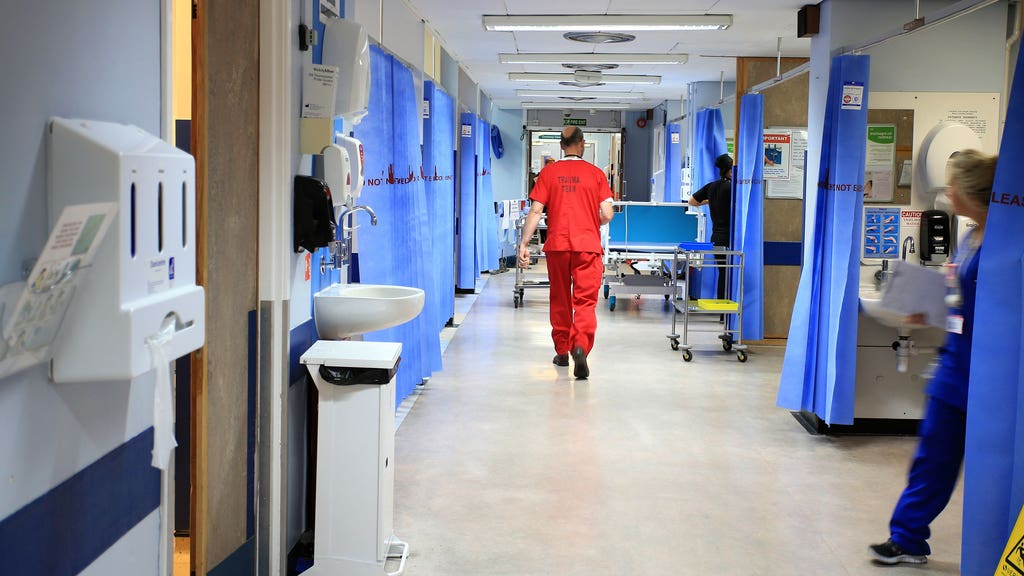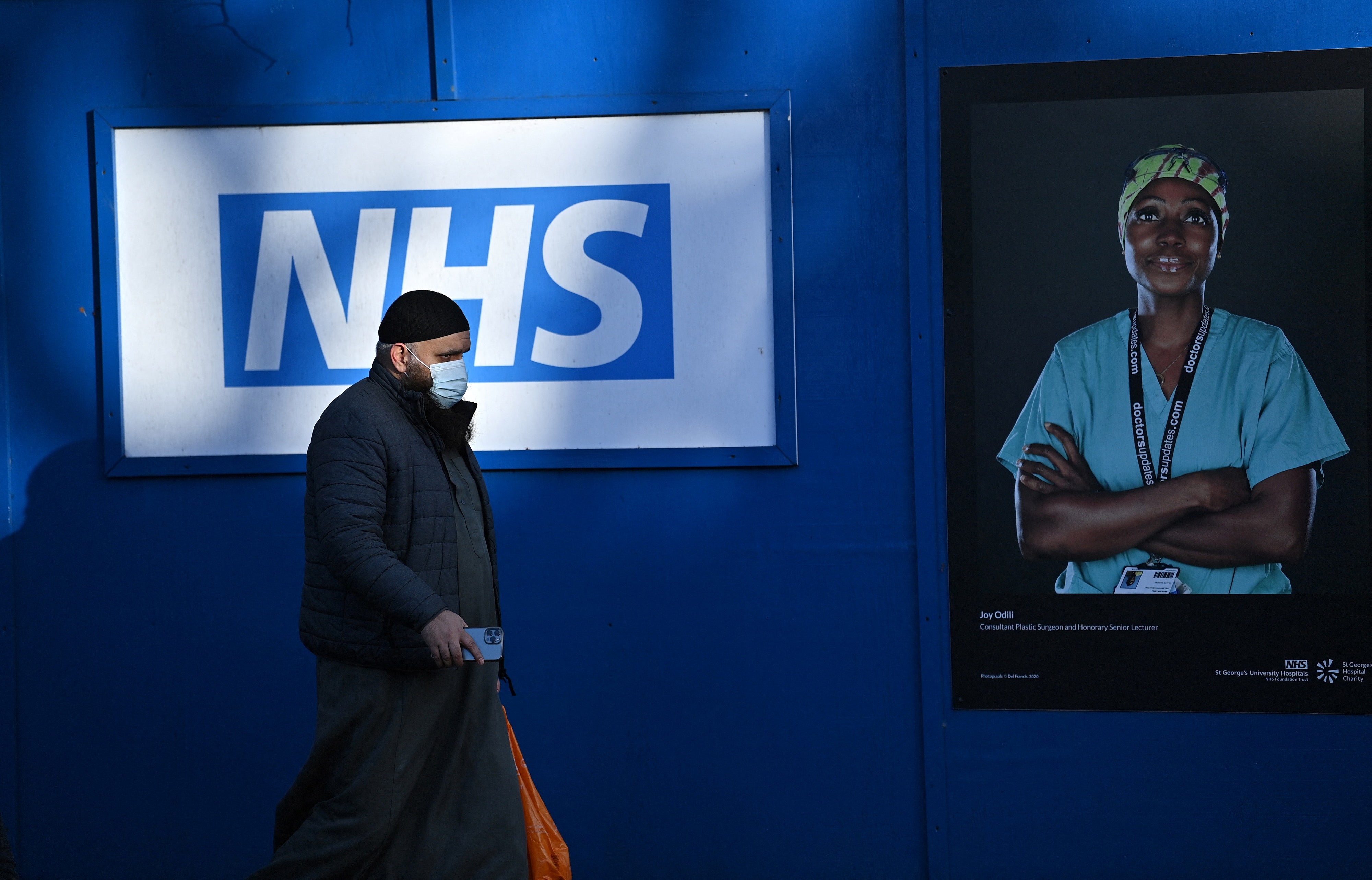Racism ruining doctors’ mental health, finds largest survey of discrimination in medicine
Exclusive: A consultant of Indian background said: “I think of leaving this job every day”

Your support helps us to tell the story
From reproductive rights to climate change to Big Tech, The Independent is on the ground when the story is developing. Whether it's investigating the financials of Elon Musk's pro-Trump PAC or producing our latest documentary, 'The A Word', which shines a light on the American women fighting for reproductive rights, we know how important it is to parse out the facts from the messaging.
At such a critical moment in US history, we need reporters on the ground. Your donation allows us to keep sending journalists to speak to both sides of the story.
The Independent is trusted by Americans across the entire political spectrum. And unlike many other quality news outlets, we choose not to lock Americans out of our reporting and analysis with paywalls. We believe quality journalism should be available to everyone, paid for by those who can afford it.
Your support makes all the difference.The majority of ethnic minority doctors have struggled with depression and anxiety as a result of racism in the medical profession from both colleagues and patients, it can be revealed.
Some 60 per cent who have experienced racial discrimination consequently reported mental health struggles while nearly 20 per cent of doctors said that they either considered leaving (13.8 per cent) or left their job (5.6 per cent) within the past two years.
The interim findings from the British Medical Association’s Racism in Medicine survey, shared with The Independent, show that 71 per cent of doctors who experienced racism chose not to report it to anyone “due to a lack of confidence that the incident would be addressed” and/or a fear they would be labelled as “troublemakers”.
Having experience racial discrimination at the hands of a colleague, a consultant of Indian background said: “I was not taken seriously. Emails were ignored. I was branded and suffered work-related stress and hypertension. I think of leaving this job every day.”
With more than 2,000 responses from doctors and medical students across the UK, the BMA believes that this survey is one of the largest of its kind on the experience of racism in the medical profession and workplace.
Just over 90 per cent of black and Asian respondents, 73 per cent of mixed-race and 64 per cent of white respondents said racism in the medical profession is an issue.
Some 20 per cent of those who had experienced racism reported racist behaviour from patients with the other 80 per cent experiencing discrimination from their own colleagues.
Ahead of the publication of the BMA’s full ‘Anti-Racism in Medicine report’, in spring 2022, the association’s headline findings indicate a high level of racist incidents occurring within the health service.

Dr Chaand Nagpaul, BMA chair of council, said: “The results from this survey, though interim, show unacceptable levels of racism within the NHS which cannot be ignored.
“Doctors from ethnic minority backgrounds and those who qualified outside the UK but are registered to practice here, want to focus on caring for patients, without the burden of abuse that comes from demoralising and often debilitating experiences of racism in the workplace.
“The findings highlight the negative impact that racist experiences have on doctor retention, wellbeing, and career progression – an indisputable rebuttal to the government’s claims in its Sewell report that the NHS is a success story for ethnic minority doctors.
“Portraying the NHS as a success purely because of the numbers of staff from ethnic minority backgrounds employed within the service, shows little acknowledgement of the racist incidents that these staff members deal with on a regular basis.”
These experiences of racism are clearly undermining the NHS’s ability to bring out the best in its workforce, Dr Chaand continued.
“There is no doubt that this will be having a knock-on effect on patient services ... It’s high time the conversation on race equality in the medical profession changes – reflects NHS staff’s lived experiences and seeks solutions.
“Employers and the government have a duty of care to address the concerns of those who work within the health service. Decision-makers must get their heads out of the sand and act now.”

A junior doctor of Pakistani background said: “When interacting with senior colleagues, I would notice that they were nicer and more helpful towards other junior doctors who were born in UK and were white.
“I would be clearly treated and spoken to differently.”
A consultant of other ethnic background said: “A patient suggested I can be deported if they suffer post-op complications.”
Roger Kline, research fellow Middlesex University Business School, described the survey’s interim findings as “shocking”.
“There is now a wealth of research demonstrating the damage that discrimination and bullying does to staff health and wellbeing, impacting on staff sickness, turnover, productivity, effective team working and patient care and safety,” he said.
“It is simply unacceptable that such behaviours continue under the noses of NHS trust boards at a time when we have serious doctor shortages,which such treatment will exacerbate.
“I hope this survey will move NHS organisations to urgently review their responses to racism and bullying, being proactive and preventative when data shows there is a problem, rather than waiting for individual doctors to raise concerns. I also hope that every doctor and manager is crystal clear what their response should be when faced by racism from patients with a clear policy in place, robustly applied.”
Dr Nikki Kanani, GP and NHS medical director of primary care, told The Independent: “There is never an excuse for racism or any form of discrimination and it should not be tolerated by anyone, including our hard-working and dedicated NHS staff.
“While our latest equality report shows that we have made progress in some areas of the NHS, it is completely unacceptable for anyone to experience racism, discrimination or prejudice at work and NHS organisations should continue to take a zero-tolerance approach to all and any form of discrimination.”
Join our commenting forum
Join thought-provoking conversations, follow other Independent readers and see their replies
Comments